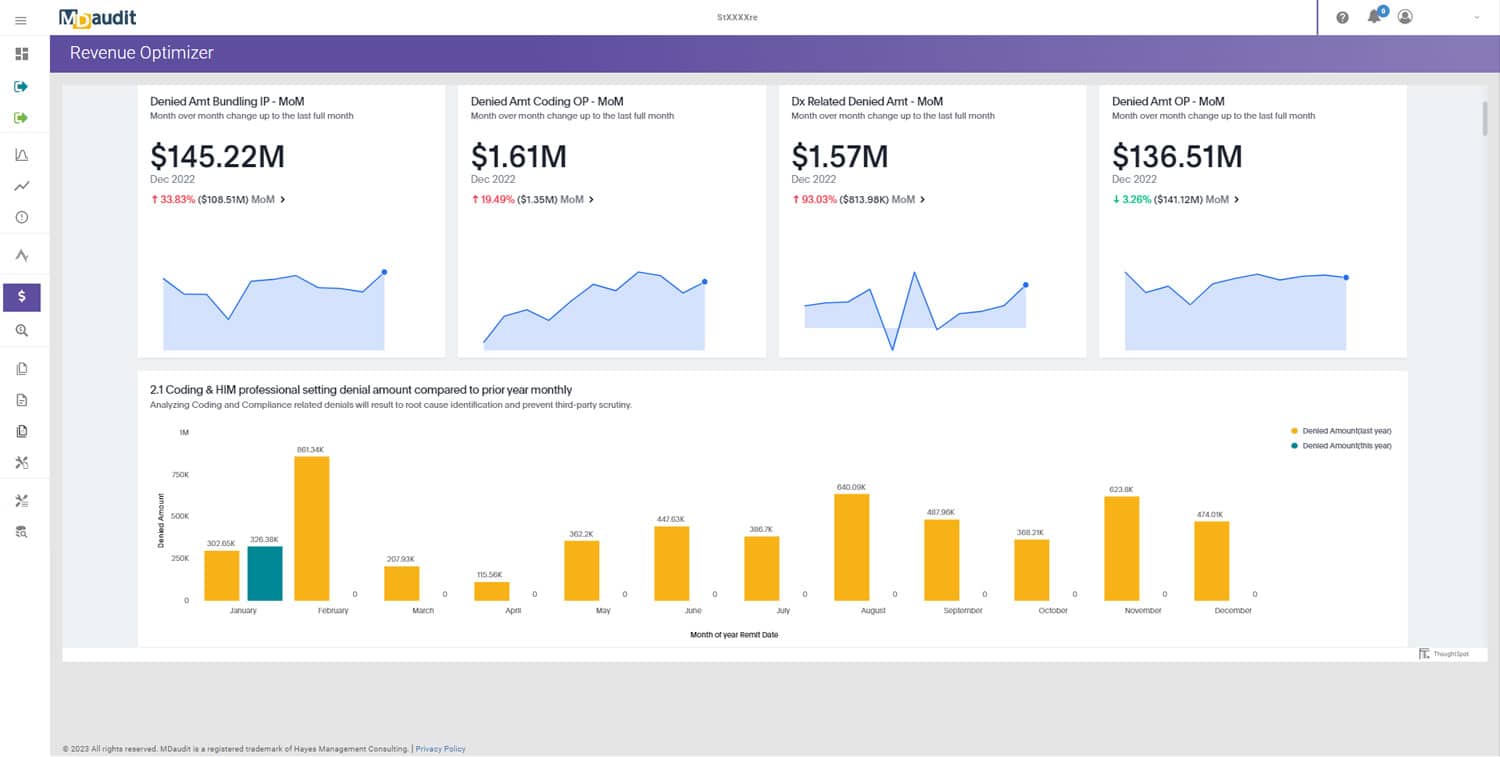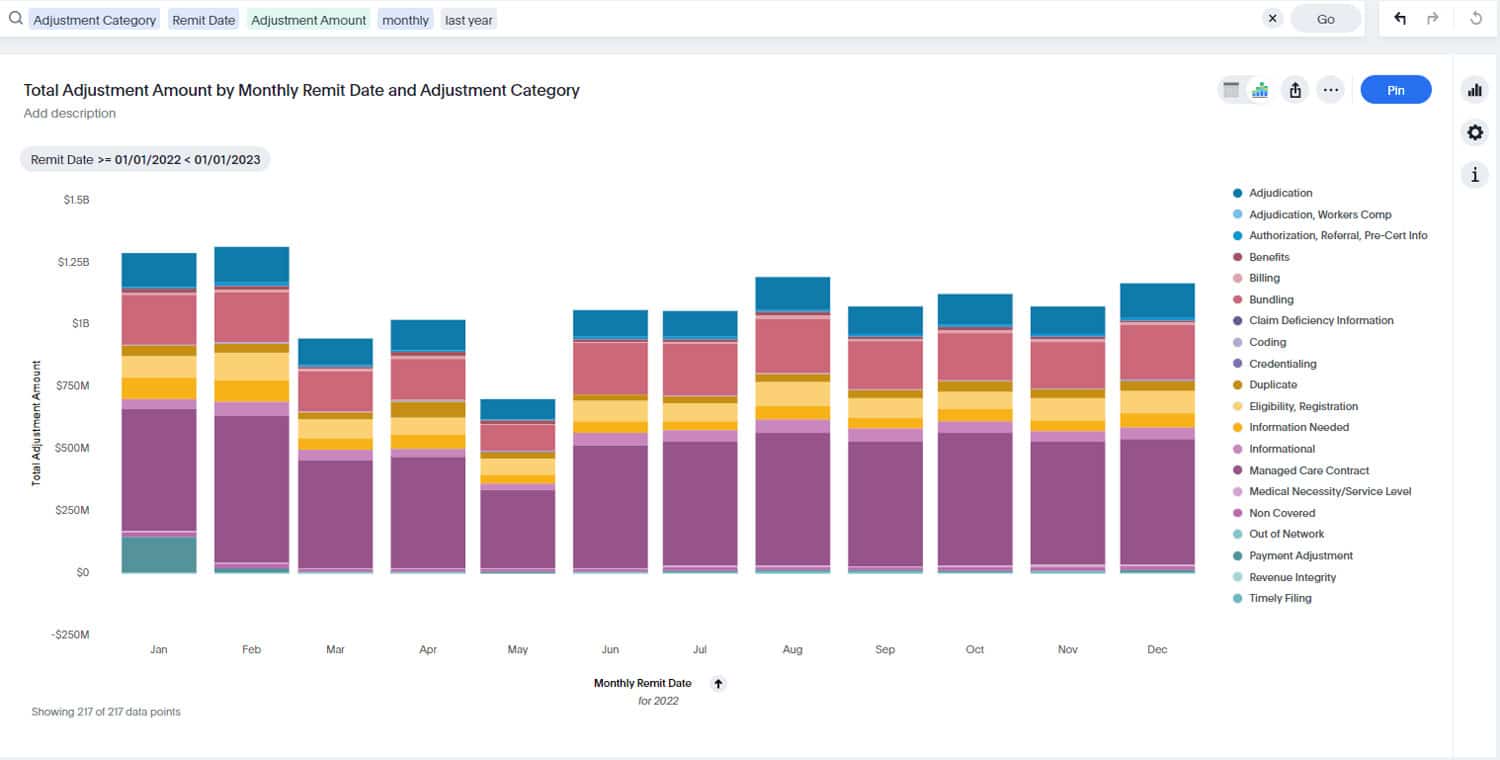The healthcare industry has been under duress for the past decade for a number of reasons: transition to value based care, new requirements with the passage of MACRA and the Affordable Care Act, and expanded billing codes with the move to ICD-10. As if that wasn’t enough turmoil, the scourge of COVID-19 has upended the healthcare environment even further.
These developments have forced billing compliance leaders and revenue cycle teams to deal with a demanding set of challenges including:
Shrinking top and bottom lines
It’s no secret that over the past few years, Medicare has been reducing its reimbursements to providers- most recently a 10 percent reduction in 2019. Third party carriers quickly followed suit and began cutting their payments as well, compounding the reimbursement reduction problem.
Increased documentation scrutiny from payers and regulators
CMS has ramped up their coding and documentation auditing which resulted in their uncovering $29 billion in inappropriate billings by organizations across the country. The increased scrutiny combined with reimbursement reductions has forced many healthcare organizations into budgetary restrictions and reduced resource bandwidth.
Expanded coding changes
Every year, the CMS introduces ICD-10 and CPT coding changes, additions, deletions, and modifiers that organizations must integrate into its billing systems. In 2020, CMS added 400 new CPT codes and 346 ICD-10 codes, dramatically increasing the workload on coding and billing compliance teams.
Quality-based care
The transition to quality-based reimbursement is ongoing, resulting in increased data monitoring, reporting, and reimbursement requirements. Meeting these complex requirements can be difficult and often results in delayed payments and a strain on cash flow.
Diverse payment policies
Non-governmental health insurance companies often set their own policies when it comes to reimbursement and there can be significant differences among them. These differences can exist state by state but can also be seen within the same state.
This policy diversity puts an additional strain on billing groups who must make sure they are following the correct process for each entity or risk claims denials and delayed payments.
COVID-19
The onset of the virus resulted in more scrambling by healthcare organizations to keep up with new billing codes that caused confusion, expanded telemedicine, and increased lengths of hospital stays. The influx of federal relief funds were welcomed by healthcare organizations and necessary to handle ramped up patient care, but they also spurred a new wave of increased scrutiny as to how those dollars were being spent. The result of that scrutiny has been a dramatic increase in denials related to COVID-19 coding issues.
The data from our MDaudit Enterprise cohorts shows 1.2 million cases and over $12 billion in charges and $4.2 billion in net revenue that is exposed to the risk of regulatory audits. The average charge per service has jumped from around $2,000 to $6,700 and so far, denials in the MDaudit cohorts have increased by 20 percent at a cost of $2.5 billion.
Impact of challenges
These growing challenges often result in communication and collaboration issues between departments. This leads to the creation of silos and frustration between departments as they try to deal with a heavier workload with fewer resources.
This siloed mentality can prove to be dysfunctional resulting in a lack of analytics when it comes to denials or revenue cycle leakage. Departments operating alone may each be using manual processes to uncover issues with the result that the organization lacks a unified process to uncover root causes that lead to effective corrective action.
In our recent webinar, we asked attendees to identify their biggest current revenue cycle/billing challenges and concerns of those outlines above. Two thirds answered “all of the above” highlighting that organizations are struggling to deal with these multiple challenges all at once.
How MDaudit Enterprise can help
MDaudit Enterprise is a risk intelligent auditing solution that enables billing compliance, revenue cycle, and revenue integrity teams in both physician practices and hospitals to successfully address and overcome the multiple challenges they face. MDaudit enterprise can help in a number of ways including:
Workflow automation and curated worksheets
This enables you to focus on process improvement, rather than just fixing transaction errors. It assists you in streamlining your auditing process, prioritizing your efforts to implement corrective action, educating stakeholders, and preventing future losses.
Charge Analyzer
One of the most important elements of MDaudit Enterprise, Charge Analyzer helps you identify root causes of issues, detect anomalies, and calculate financial impact of over or undercoding by area and by provider, while also allowing you to benchmark yourself to other like organizations around the nation and peers that are also part of the MDaudit Enterprise community.
Revenue Optimizer
This AI-powered tool provides you with speed to insights and presents a clear picture of root cause of denials that helps you mitigate and adjudicate future denial write offs.
MDaudit Enterprise promotes leveling your organizational silos by offering you a collaborative platform that brings all your stakeholders together and focuses them on common issues.
The challenges you face in the current turbulent environment are not going away anytime soon. Leveraging the latest auditing technology and expertise will enable you to tackle and overcome these challenges and help you ensure the success and financial viability of your organization.





